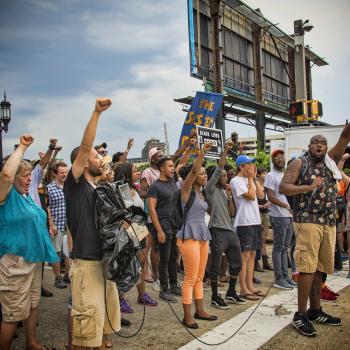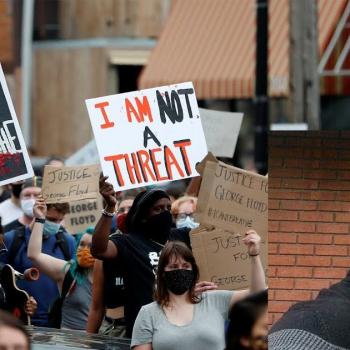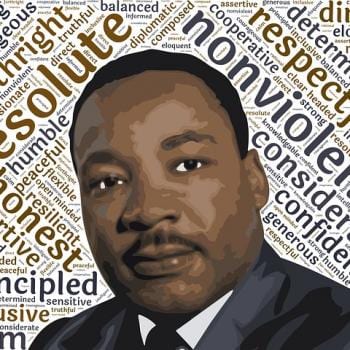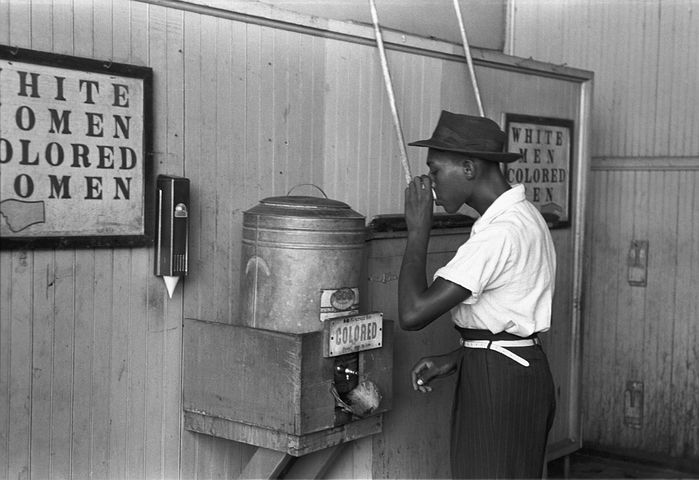 By Guest Contributor:
By Guest Contributor:
After publishing my post 7 Reasons You Should Be Happy You Are Not An American Muslim, a Jewish friend on social media wrote a similar version for Jews, titled Anti-Semitism: 7 Reasons You Should Be Happy Not To Be a Jew, and now an African American minister friend in my community writes about the the prejudice and racism African Americans face. Like I stated on my original piece, this is not meant to be an anti-white rant and is meant to raise awareness to provide a glimpse of what so many African Americans have to go through on a daily basis. In fact, the article was authored on the urging of a mutual white Christian minister in our interfaith council. Raising awareness to social (in) justice is the calling of our respective faiths. Black Lives matter. Here is his article in full.
- You will not have to pray for your family members to return home safely when they leave for the day – Anti-Blackness can turn lethal without rhyme, reason, or warning. Being harmless or innocent are flimsy protections when confronted with white supremacy and institutional racism. Many of us resort to daily prayers so that our children, partners, family members, and friends return home safely after another day of navigating this hostile environment. Sadly, there are too many times when those prayers are not answered.
- White women will not call the police when they happen to see you in public spaces – Barbecuing in a park, sleeping in a university common room, sitting in a Starbucks, and showing a house that you are trying to sell are just some of the reasons that have frightened, resulting in calls to the police on Black people. It seems that these women feel so threatened by the presence of Black bodies that they desperately need the police to remove them just so their peace of mind can be restored.
- You do not have to feel conflicted about Cosby and OJ – “He was set up!” is an almost irresistible rallying cry that can cause many of us to close ranks around people who do not deserve it. This always tugs at our heartstrings because we know of too many people who have been unjustly destroyed by the forces of white supremacy. Unscrupulous Black men like Clarence Thomas, Cosby, and OJ have tried to use this to their own advantage after they have gotten in trouble. Then a furious debate ensues between those Blacks who are driven by racial solidarity to defend the Black men at all costs and those accused of treason who do not.

- You will not have to explain to your children why dark skin and kinky hair are not “ugly” – The psychic assault on African Americans begins shortly after birth. By the time they enter school, a significant percentage of Black children have internalized negative messages that link dark skin and African physical features with low intelligence, danger, and unattractiveness. What is a parent to do to prevent their Black child from developing a crippling self-hatred?
- You can use your natural voice when doing business by phone – It is not uncommon for a Black person to have a special voice that they only use over the phone when they want to sound “professional” or “All American” to the white person on the other end of the line. “Sounding Black” can result in more hostile customer service, the sudden unavailability of a housing vacancy, or rejection by a potential employer. This is also called “code switching.”
- Being seen by police is not a cause for alarm – The control of Black bodies is one of most important functions that cops perform in American life. Every encounter we have with law enforcement is fraught with danger and the possibility of abuse, arrest, or worse.
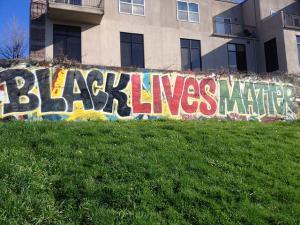
- There are very few spaces outside of your community where you are treated as if you belong – The white gaze follows us like a drone whenever we venture out of a Black community into majority white spaces. We worry that something we might say or do will confirm Black racial stereotypes or draw angry attention. Some Blacks will not eat chicken or watermelon where white people can see them. Others lower their voices in work lunchrooms or restaurants for fear that others might hear them say something that will make them feel frightened or offended.
About the guest contributor:
Rev. Kamal Hassan, an African American, has served for 10 years as the Pastor of the Sojourner Truth Presbyterian Church in Richmond, California. He is also a Board member and Co-Spiritual Director of the OneLife Institute for Spirituality and Social Transformation in Oakland, California. He is a member of the Second Acts Liturgical Action Group, which is also based in Oakland.




